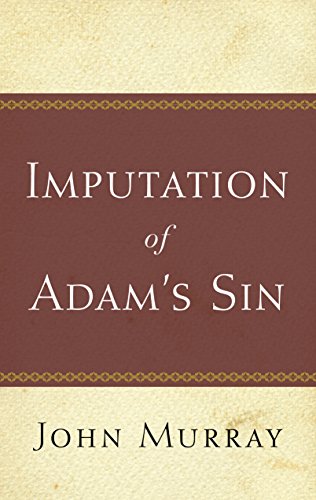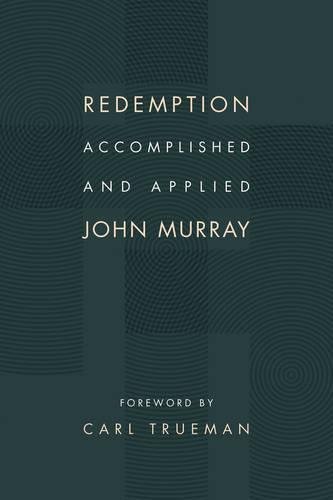
Quotes by John Murray
When the civil authority trespasses the limits of its authority, it is the duty of the church to condemn such a violation.
The fear of God is the soul of godliness.
The question has been discussed: which is prior, faith or repentance? It is an unnecessary question and the insistence that one is prior to the other is futile. There is no priority. The faith that is unto salvation is a penitent faith and the repentance that is unto life is a believing repentance… It is impossible to disentangle faith and repentance. Saving faith is permeated with repentance and repentance is permeated with faith
The faintest whisper of support and encouragement uttered by a Christian in the ears of his fellow believer is heard in heaven.
The facts are that the more intelligent, the deeper and the more unwavering the assurance of salvation is, the humbler, the more stable and the more circumspect will be the life, walk and conduct. Where closeness of fellowship with God is maintained, where the highest privileges of redemption are appropriated, there holiness, love and obedience must reign.
The Assurance of Faith, Collected writings of John Murray, 1977. By permission Banner of Truth, Carlisle, PA.
There is no conflict between the gratification of desire and the enhancement of man’s pleasure, on the one hand, and fulfillment of God’s command on the other… The tension that often exists within us between a sense of duty and wholehearted spontaneity is a tension that arises from sin and a disobedient will. No such tension would have invaded the heart of unfallen man. And the operations of saving grace are directed to the end of removing the tension so that there may be, as there was with man at the beginning, the perfect complementation of duty and pleasure, of commandment and love.
Union with Christ is really the central truth of the whole doctrine of salvation not only in its application but also in its once-for-all accomplishment in the finished work of Christ. Indeed the whole process of salvation has its origin in one phase of union with Christ and salvation has in view the realization of other phases of union with Christ.
Devotion signifies a life given, or devoted to God. He therefore is the devout (godly) man, who lives no longer to his own will, or the way and spirit of the world, but to the sole will of God, who considers God in everything, who makes all the parts of his common life, parts of piety (godliness), by doing everything in the name of God, and under such rules as are conformable to His Glory.
The Word of God (does not) provide for (or) sanction separation apart from the dissolution of the marriage bond. Divorce for adultery is by divine sanction; it is a divinely instituted provision for a certain situation and it dissolves the bond of marriage. But there is no such provision for mere separation. The divine institution is that those united in the bond of marriage are bound to the mutual discharge of all marital debts until the bond is severed by death or by dissolution on a proper ground.
For the child of God, the primary meaning of the fear of God is veneration and honor, reverence and awe. It is the attitude that elicits from our hearts adoration and love, reverence and honor. It focuses not upon the wrath of God but upon the majesty, holiness, and transcendent glory of God.
If Christ loved the weak believer to the extent of laying down his life for his salvation, how alien to the demands of this love is the refusal on the part of the strong to forego the use of a certain article of food [or anything else] when the religious interests of the one for whom Christ died are thereby imperiled! It is the contrast between what the extreme sacrifice of Christ exemplified and the paltry demand devolving upon us that accentuates the meanness of our attitude when we discard the interests of a weak brother. And since the death of Christ as the price of redemption for all believers is the bond uniting them in fellowship, how contradictory is any behavior that is not patterned after the love which Christ’s death exhibited!
But how then may the Lord’s guidance be expected?… In general, He guides and directs His people, by affording them, in answer to prayer, the light of His Holy Spirit, which enables them to understand and to love the Scriptures. The Word of God is not to be used as a lottery, nor is it designed to instruct us by shreds and scraps, which, detached from their proper places, have no determinate import; but it is to furnish us with just principles, right apprehensions to regulate our judgments and affections, and thereby influence and direct our conduct.
Every brand of theology that is not grounded in the particularism which is exemplified in sovereign election and effective redemption is not hospitable to this doctrine of the assurance of faith.
The Assurance of Faith, Collected writings of John Murray, 1977. By permission Banner of Truth, Carlisle, PA.
How can we understand righteousness as the positive opposite of sin unless we construe it as the opposite of what sin is? And if sin is the transgression of the law, righteousness must be conformity to the law.
"Fornication" is unequivocally stated to be the only legitimate ground for which a man may put away his wife. The word used here is the more generic term for sexual uncleanness, namely fornication (porneia). This term may be used of all kinds of illicit sexual intercourse and may apply to such on the part of unmarried personas, in whose case the sin would not be in the specific sense of adultery. But though it is the generic word that is used here (cf. also Matt. 19:9), it is not to be supposed that the sense is perplexed thereby. What Jesus sets in the forefront is the sin of illicit sexual intercourse. It is, of course, implied that such on the part of a married woman is not only fornication but also adultery in the specific sense, for the simple reason that it constitutes sexual infidelity to her spouse. And this is the only case in which, according to Christ’s unambiguous assertion, a man may dismiss his wife without being involved in the sin which Jesus proceeds to characterize as making his wife to be an adulteress.
Nothing is more relevant to progressive sanctification than the reckoning of ourselves to be dead to sin and alive to God through Jesus Christ (cf. Rom. 6:11).
Union with Christ is really the central truth of the whole doctrine of salvation not only in its application but also in its once-for-all accomplishment in the finished work of Christ.
Indeed, the more sanctified the person is, the more conformed he is to the image of his Savior, the more he must recoil against every lack of conformity to the holiness of God. The deeper his apprehension of the majesty of God, the greater the intensity of his love to God, the more persistent his yearning for the attainment of the prize of the high calling of God in Christ Jesus, the more conscious will he be of the gravity of the sin that remains and the more poignant will be his detestation of it… Was this not the effect in all the people of God as they came into closer proximity to the revelation of God’s holiness?
Faith is knowledge passing into conviction, and it is conviction passing into confidence.


